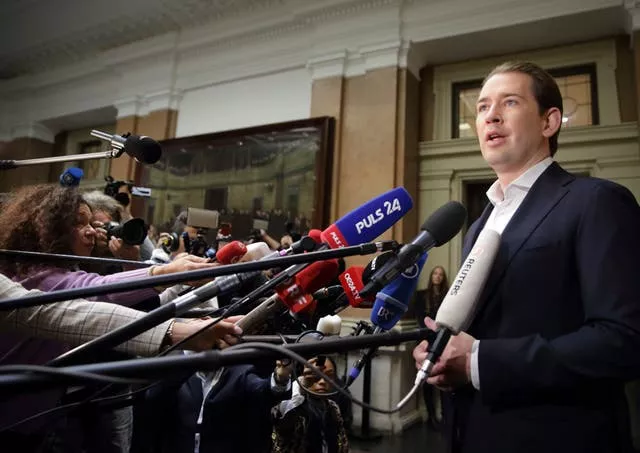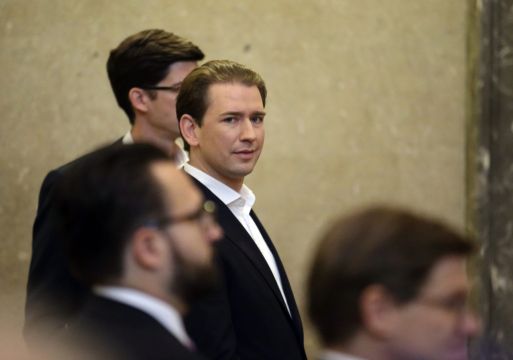Austrian former chancellor Sebastian Kurz has gone on trial accused of making false statements to a parliamentary inquiry into alleged corruption in his first government.
Once a rising star among conservatives in Europe, Kurz resigned in 2021 amid a separate corruption probe and has since left politics.
The 37-year-old, who denies the charge, could face up to three years in prison if convicted.
The case, which opened at Vienna’s criminal court on Wednesday, centres on his evidence to an inquiry that focused on the coalition he led from 2017, when his conservative People’s Party formed a government with the far-right Freedom Party, until its collapse in 2019.

Prosecutors accuse Kurz of having given false evidence in June 2020 regarding his role in the setting up of a holding company, OeBAG, which administers the state’s role in some companies, and the appointment of his former close confidant, Thomas Schmid, to its leadership.
In their indictment, prosecutors refer to potentially incriminating chat messages found on Mr Schmid’s phone. They have extensively questioned Mr Schmid, who is co-operating with them in an attempt to become a crown witness.
Kurz said the investigation has been influenced by politics.
“But I nevertheless hope for a fair trial and that these accusations will be proven to be false in the end,” he said as he arrived at court with his lawyer.
Besides Kurz, his former chief of staff, Bernhard Bonelli, is accused as well as Bettina Glatz-Kremsner, the former head of Casinos Austria, who is accused of making false statements regarding the appointment of a board member at that organisation.
Prosecutor Gregor Adamovic said Kurz and the other two defendants have lied to the public.
The charge of giving false evidence carries a maximum penalty of three years in prison.
The case marks the first time in more than 30 years that a former Austrian chancellor has stood trial.

Kurz rose to power on an anti-immigration platform and a promise to reform Austrian bureaucracy.
When he became the leader of his Austrian People’s Party and then chancellor in 2017, he was only 31, making him the youngest democratically elected leader at the time. Under his leadership the People’s Party won elections in 2017 and 2020.
Kurz pulled the plug on his first government after a video surfaced showing the vice chancellor and Freedom Party leader at the time, Heinz-Christian Strache, appearing to offer favours to a purported Russian investor.
A few months later, Kurz returned to power in a new coalition with the environmentalist Greens in early 2020, but resigned as chancellor in October 2021.
The Greens had demanded he be replaced after prosecutors announced that he was a target of a second investigation into suspected bribery and breach of trust. Kurz also denied any wrongdoing in that case.
The trial is being closely watched as Kurz’s former party faces low approval ratings ahead of a regular parliamentary election next year.
Prosecutors plan to call at least 18 witnesses, including Strache and Schmid.
Kurz now works as a global strategist for Thiel Capital, founded by German-American billionaire venture capitalist Peter Thiel. He has also set up his own consultancy firm.







